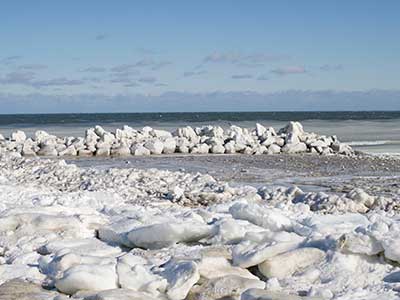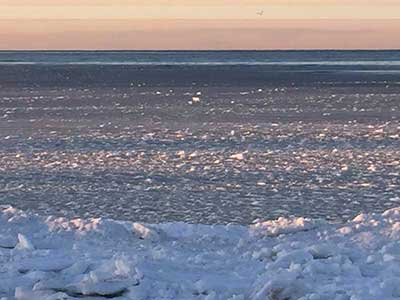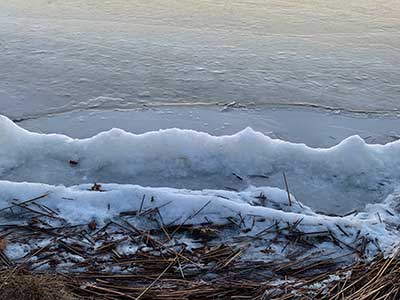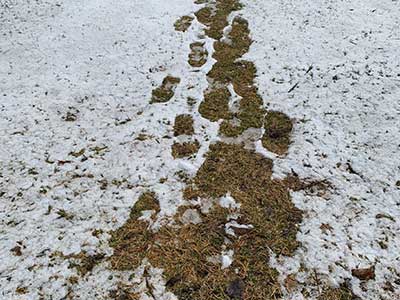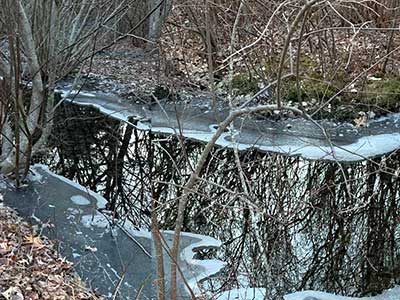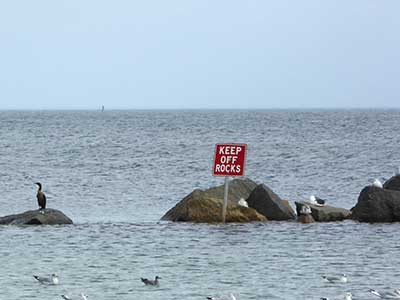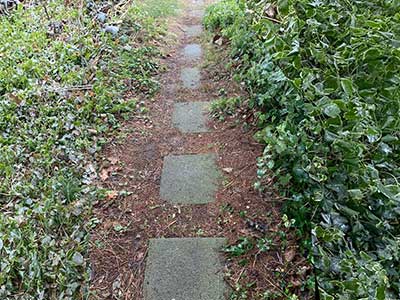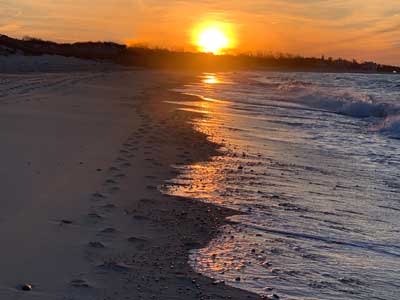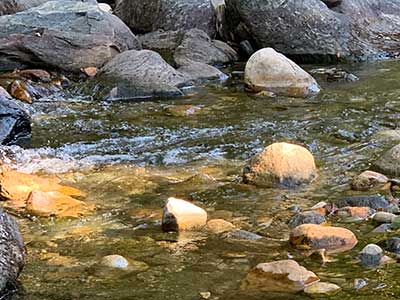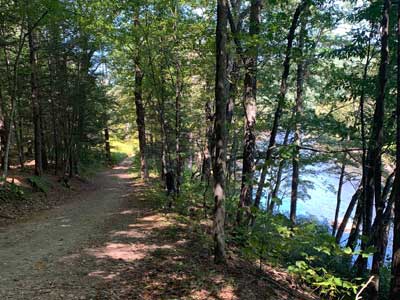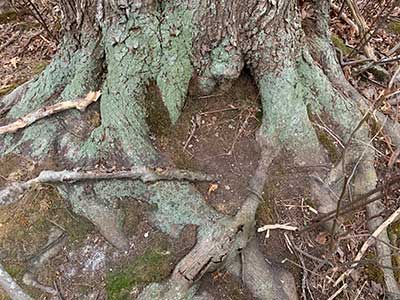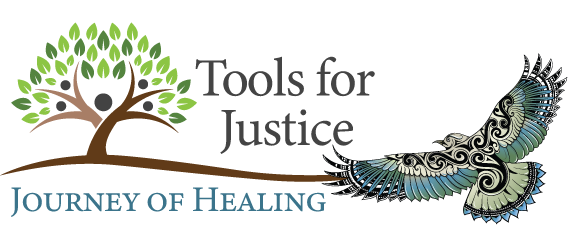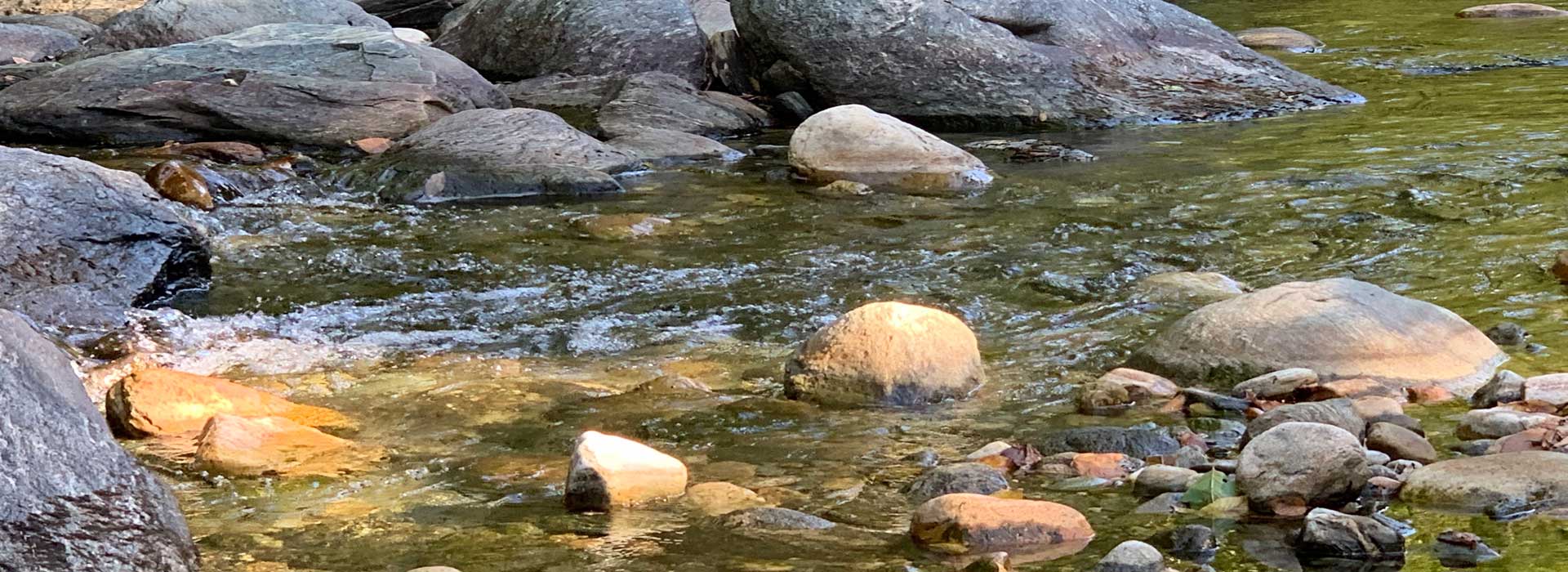
Acknowledgement
As you see on the banner on the front page, acknowledgement of wrongs is the first, the beginning step on the process to wholeness and true right relationship. BUT, before we can acknowledge anything we have to learn what the specific wrong is that was done. We can’t acknowledge that which we don’t know. Read the pages in the Harm and Healing sections before trying to move forward.
Land acknowledgment statements, which are becoming quite commonplace in many organizations and communities, can be an extremely valuable tool, a way to start OR they can be a feel good trap. They can be part of recognizing the role of white colonialism, occupation, and oppression of the original, Indigenous people from whom land and livelihood was stolen OR they can be a way to check the “woke” box and end there. The front page of this website shows a banner with a 5 part process:
- Acknowledging a wrong
- Making an apology
- Acceptance of the apology
- Making amends
- Moving Forward together
A key component of land acknowledgement is understanding the specific way the occupied land was taken from the Indigenous inhabitants. However, another tricky aspect of land acknowledgement statements is its akin to going to a meeting which starts with the leadership acknowledging that they are on land they stole from you, without any action or intention to return ownership or negotiate with you fair compensation. How would you feel in this situation?
The Apology
After learning enough to form a useful and complete acknowledgement then, and only then is it time to consider an apology. Many church denominations and organizations have worked on this step, often without going through the learning process first. The following articles written by Black and Indigenous people, is a good framework for proceeding in right order from the acknowledgement stage into a potential apology. It can lead into negotiations, with appropriate Tribal people, on what needs to be included in the apology and a beginning of a discussion on amends. Air apologies, those not directed at a person or people that you have some relationship with, can do more harm than healing.

READ THE FOLLOWING!
—————————
The Violence of White (and non-Black PoC) Apologies
by Ciarra Jones | Jun 9, 2020
Excerpt from the article…
Before you apologize to your Black acquaintance, pause and reflect on a few things…
… many Black people are experiencing an overwhelming influx of apologies. Particularly, long overdue apologies for past microaggressions, macroaggressions, and overt racism. …
What many white people fail to understand is that when an apology is devoid of accountability, it is doubly harmful to Black people.
Yet, white America struggles greatly with apology because apology also comes with accountability.
Accountability means examining the root of what caused one’s behavior. In the case of perpetuating anti-Blackness, this means reckoning with one’s own racism. Many white people (and non-Black PoC) are not ready to do this work, the work of both making amends and taking active steps towards being better ( such as reading critical race theory, attending anti-racism workshops, and educating friends and family). …
Ask yourself: What brought about this sudden need to apologize? Did this person already do the labor of explaining their pain and I did not hear them until now? Did we already have a back and forth where I failed to hear them, but now suddenly, I understand? Am I overwhelmed by feelings of shame and guilt and I need to get rid of them? Am I embarrassed?
Oftentimes, white people believe they are apologizing for Black people, but the apology is really for them.

A Guide to Indigenous Land Acknowledgment
Excerpt from the article…
It is important to understand the longstanding history
that has brought you to reside on the land, and to seek to understand your place within that history. Land acknowledgements do not exist in a past tense, or historical context: colonialism is a current ongoing process, and we need to build our mindfulness of our present participation.” Northwestern University
TIPS FOR CREATING AN INDIGENOUS LAND ACKNOWLEDGMENT STATEMENT
- Start with self-reflection. …
- Do your homework. …
- Use appropriate language. …
- Use past, present, and future tenses. …
- Land acknowledgments shouldn’t be grim. …
Additional factors to consider:
- Don’t ask an Indigenous person to deliver a “welcome” statement for your organization. …
- Build real, authentic relationships with Indigenous people. …
- Compensate Indigenous people for their emotional labor. …
- Understand displacement and how that plays into land acknowledgment. …
- There are many types of land acknowledgments. …
Take action:
Land acknowledgment alone is not enough. It’s merely a starting point. Ask yourself: how do I plan to take action to support Indigenous communities? Some examples of ways to take action:
- Support Indigenous organizations by donating your time and/or money.
- Support Indigenous-led grassroots change movements and campaigns. Encourage others to do so.
- Commit to returning land. Local, state, and federal governments around the world are currently returning land to Indigenous people.
- Individuals are returning their land, too. Learn more about your options to return your land.
Like land achnowledgment, apology and amends can get very tricky. For example, imagine if after antebellum a county in traditional Cherokee territory was given to former slaves who lived in peace and prospered. But in order to make amends to the displaced Cherokee the State, controlled by white people, evicted everyone of color and gave the land back to the Tribe with a guarantee of complete sovereignty including language and religious practice. Years pass and the role of the white State government becomes a footnote, so instead the displaced Black folk and their descendants and white allies blame the Cherokee. Global politics show how that would turn out and how Christian white supremacy triumphs.
As these issues are considered check out this page on Sovereignty. Especially scroll down to see the link to the Landback website.
Apology and Reconciliation in Settler States
This dissertation offers a normative account of how we should conceive of reconciliation between Indigenous people(s), states qua states, and their non-Indigenous citizens.
7 Apologies Made to American Indians
In 1993, a joint resolution of Congress apologizing to Native Hawaiians was signed into law by President Bill Clinton. …
Just like you, when we think of these misdeeds and their tragic consequences, our hearts break and our grief is as pure and complete as yours. We desperately wish that we could change this history, but of course we cannot. On behalf of the Bureau of Indian Affairs, I extend this formal apology to Indian people for the historical conduct of this agency.”
A Sorry Saga: Obama Signs Native American Apology Resolution; Fails to Draw Attention to It
by Rob Capriccioso | Jan 13, 2010 The full article is here… Excerpt from the article… I s an apology that's not said out loud really an apology? What if the person expressing the apology doesn't draw attention to it? Those are questions that some tribal citizens are...
Are Apologies Enough?
by Facing History The full article is here… Excerpt from the article… Stolen Lives: The Indigenous Peoples of Canada and the Indian Residential Schools Chapter 5: Prime Minister Harper’s apology was, by and large, well received by the representatives of the First...
After Generations, Lower Sioux Community Gets Ancestral Land Back
The Lower Sioux Community is celebrating the return of ancestral land with great historical significance. It’s the site where the Dakota War of 1862 started after the United States did not honor the Mendota Treaty.
